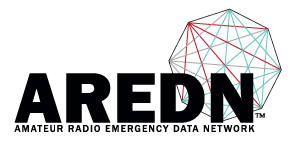I've flashed AREDN firmware on 3 nodes, all Ubiquity NanoStation M2.
They see each other via WiFi Scan, but don't show up as each others' neighbors in a mesh in Mesh Status, nor are they visible in WiFi lists from smart phones or other computers.
I've set their hostnames, ssids, passwords and the mileage (5000m) configuration settings, and taken defaults for everything else.
I've failed to find any AREDN documentation, nor anything via Google more generally, addressing:
1. How to get them to link up as a mesh
2. How to get them to show up as available for WiFi connections by other devices
3. How to establish an internet connection to the mesh, so devices that connect to the mesh can access it via the mesh
My impression is that the intent of AREDN is to make all this mostly just work, by default, without too much application of tech expertise, so think I must be missing something obvious.
I'm a long-time expert in, primarily, software, TCP-IP, and related tech stuff, but I'm new to the ham world -- so feeling pretty stupid at this point.
I'm working at the City of L.A. IT Agency Communications Support group, on promoting the value of mesh networking to a number of city departments, for a variety of routine everyday uses and for disaster preparedness.
A small group of us, at different levels, including volunteers interfacing to groups outside the City of L.A. organization are working together on this, and I'm the technical point person on the project.
Can anyone suggest where I should look for information that might boost me to minimal success?
Is anyone available for live texting back and forth via phone, for instance, to get me over this hump?
regards, -- John Kirk KM6DYY
You are here
newbie (problems with NanoStation M2) in the dark...
Wed, 08/16/2017 - 16:25
#1
newbie (problems with NanoStation M2) in the dark...
Theme by Danetsoft and Danang Probo Sayekti inspired by Maksimer

You can't connect to a node directly with "normal" wifi. You'll need a wired connection to another device like a router to provide an access point for normal devices.
I'll let someone with more experience address the internet connection. You'll need a managed switch, properly configured, unless the node is an AirRouter (then just use the WAN port).
For node to mesh together over RF, they must have the same:
All the details I offered at the outset were moot. The firmware just works -- using defaults for nearly everything (I only need to set hostnames, passwords, and max mileages). I had been surmising it would be more complicated, and that the mesh mechanism was less separate from the traffic passing through the mesh.
I've set up nine nodes, and we're thinking about the next dozen. So far, only for feasibility demos. I still haven't done all the distance testing for point-to-point connections between nodes, but all the problems have disappeared.
Once I got the message that the mesh, as a whole, just works using defaults for everything and then acts as transit among anything else connected to mesh nodes via ethernet -- all has been rosy.
The mesh nodes supply addresses via DHCP to whatever's connected via ethernet, and routing of any of the traffic to/from outside the mesh is handled by the usual TCP/IP methods. The mesh supplies DNS naming for the assigned hostnames as <hostname>.local.mesh, so it's easy to remember the mesh node names.
Again, thanks for the help -- and for the wonderful mesh firmware implementation.
I look forward to meeting some of you at the HAMCON (hamconinc.org) in Torrance Sep 15-17.
regards, -- John Kirk KM6DYY
Andre, K6AH